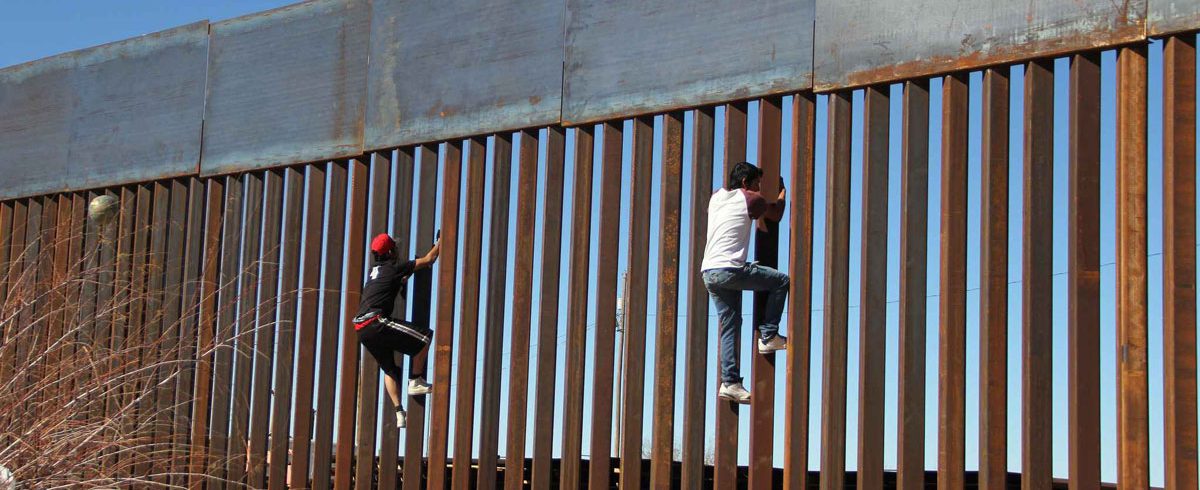le portail de la science politique française
le portail de la science politique française

L’appel à propositions pour le prochain Congrès mondial de la science politique de l’IPSA, qui se tiendra à Brisbane (Australie) du 21 au 25 juillet 2018, est ouvert jusqu’au 10 octobre.
Toutes les informations sur le congrès sont disponibles sur le portail web de l’IPSA :
https://wc2018.ipsa.org/events/congress/wc2018/home
A consulter aussi la très utile FAQ pour répondre à toutes vos questions pratiques :
https://wc2018.ipsa.org/faqs/world-congress-2018/all
Le thème de ce 25e congrès est « BORDERS AND MARGINS ».
« The post-Cold War acceleration of globalization and the multi-layered consequences of the 9/11 terrorist attacks have had profound effects on borders. These include empirical borders, such as state, regional, security and “glocal” boundaries that feature on maps and in organizational practices, and also conceptual ones, such as social, cultural, economic, religious, ethnic, sexual and linguistic distinctions that discipline and divide human populations through identity politics and bio-political management.
These borders create margins, through which administrative and military bureaucracies, as well as NGOs, activists, “networks” and more-or-less organized criminals and terrorists operate, empirically and conceptually. Borders between recognized states, de-facto states, sub-states, occupied territories and supra-national governance authorities are spatial creations defined through lines that separate one country, state, province, zone, “union” etc. from another, while borderlands appear to be critical zones at the margins of state control and governing institutions.
However, borders are not simply territorial lines demarcated by road signs, official checkpoints, even barbed-wire fences and fortified walls, but institutions in themselves. They have a dynamic character arising from their formal or informal functions and impacts. At a time when entire regions have been destabilized by the implosion of borders – often imposed by former and current imperialisms rather than arising through freely negotiated or democratic means – these margins are now conflict zones and flash points in national and international politics. Such conflicts and controversies are currently presenting very serious challenges to the international governance of human rights derived from the Universal Declaration of 1948, which reaches its 70th anniversary in 2018.
In the last few decades, the evolution of information technologies has transformed the traditional “border as a barrier” by virtually enclosing people into groups with common identities and interests. These groups are dispersed throughout the globe, and so lack any form of territorial compactness or contiguity. Electronic “connectedness,” whether in information exchange, e-commerce, international academic work, financialization, security surveillance or criminality, challenges the imposition of physical barriers, bureaucratized checks and migration controls in starkly political terms. The new “Great Firewall of China” is about as ineffective as the old physical Great Wall was, and “leaks” of huge quantities of financial, commercial and security data continue to defy the attempted criminalization of “leakers.” The challenges posed by these global developments – which make headline news when violence erupts or powerful politicians are exposed – invite us to explore the fundamental dynamics of inclusion and exclusion under an all-encompassing theme “Borders and Margins.”
Along with those who constitute the current majority/minority or other identity “mix” within a state, there are also those caught in marginal zones, such as immigrant groups that are physically “inside” but are said by some not to “belong.” They are typically central to a politics of multiculturalism/cosmopolitanism, or nationalism/assimilation, or expulsion/genocide. The politics of “Borders and Margins” has a common centre of gravity: that of “otherness” or “otherization,” which, in turn, determines the borders and creates marginalizations. It is these practices which further determine inequalities of wealth and power, now very extreme in global terms. “Borders and Margins” offers participants in IPSA’s 25th World Congress broad scientific possibilities within the ethical dimensions through which the discipline operates.
These conjunctions of empirical activities and conceptual claims generate new methodologies in cognate disciplines that political scientists are keen to adopt. The Congress theme should be taken to include further perspectives including history, geography, International Relations, international law, philosophy, sociology, political psychology, cultural studies, feminist and gender studies, queer perspectives, security studies and similarly engaged forms of scientific enquiry. In these fields there are crucial debates on sovereignty and identity, rights and obligations, just and unjust warfare and “interventions,” democratic theory and practice, and international governance, among other areas of concern.
We therefore expect that “Borders and Margins” will thematically unite participants and broaden their understanding of politics. “Borders and Margins” are constitutive of crucial political processes and are therefore a focus for the international political sciences which study them ».
https://wc2018.ipsa.org/events/congress/wc2018/congress-theme-borders-and-margins